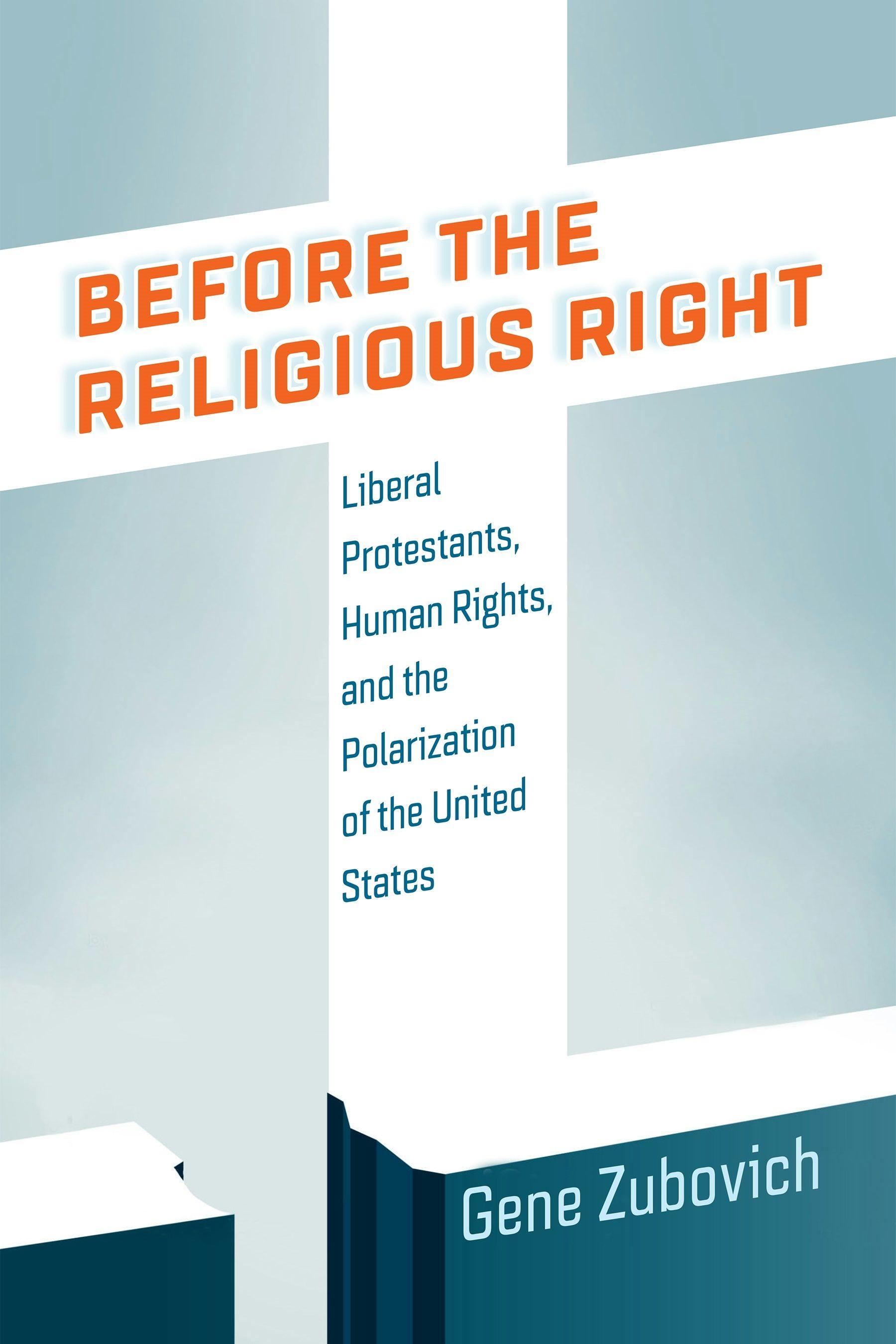Before the Religious Right is sweeping in its breadth as historian Gene Zubovich examines the alliance between midcentury ecumenical Protestants and liberal politics in the United States. While dozens of books have examined conservative religion and politics in the United States, Zubovich's book argues for the importance of ecumenical religious institutions and activists in the rise of the consensus liberalism. Following historian David Hollinger, Zubovich has chosen to call his subjects “ecumenical Protestants” not only because they collaborated across denominations but because they held a theological commitment to creating a universal church, a Christianity that broke down boundaries of race and nation. Beginning with ecumenical Protestants’ endorsement of FDR's New Deal, Zubovich argues that they were also responsible for generating widespread support for an anti-racist interpretation of human rights. Ecumenical Protestants infused “political liberalism with the cultural capital of Christianity” (10), he writes, and through institutions like the Federal Council of Churches in Christ (reorganized in 1950 as the National Council of Churches), they convinced a broader public of affluent and middle-class white churchgoers to support liberal policies as a matter of faith.
Not all Protestants agreed with their leaders’ liberal religious politics when it came to foreign policy, civil rights, and critiques of unregulated capitalism. Throughout the book, Zubovich tracks the increasingly vocal dissenters to religious liberalism from both the right and the left. Conservatives attacked the ecumenical leaders as socialists in clerical garb, a dynamic that provoked clergy and lay leaders alike to distance themselves from their more left-leaning colleagues (some of whom were actually socialists and sympathetic to aspects of communism). Meanwhile, a younger cohort that included college students who anticipated the New Left embraced a radical theology of revolution that drove them to participate in direct action protests as they became increasingly frustrated with the liberal passivity of larger church institutions. Zubovich contends that the schisms over politics among white Protestants had several consequences, including anticipating the political polarization of the 1970s and 1980s and laying the groundwork for a new iteration of religious politics from the Religious Right.
Before the Religious Right joins a vibrant field of scholarship addressing how religious (mostly Christian) institutions, activists, and ideologies have shaped foreign policy, race, capitalism, gender, and sexuality and how these and other issues have in turn shaped American religion. As his title suggests and as Zubovich explains in the introduction, most of this work has examined white evangelicals' worldview and political activism. Zubovich engages with those studies and makes the case that this more familiar brand of religious politics cannot be fully understood without also understanding the earlier religious politics of ecumenical Protestants. For Zubovich, the Religious Right that came into political being in the 1970s was not merely a revolt against what evangelicals called "secular humanism" but against other Protestants' liberal moral politics.
